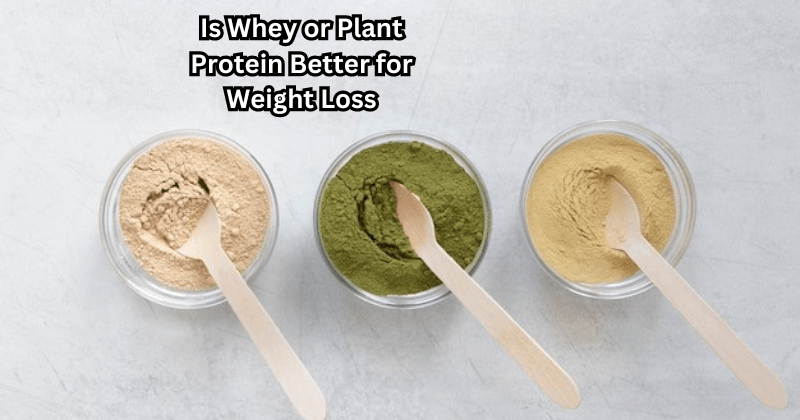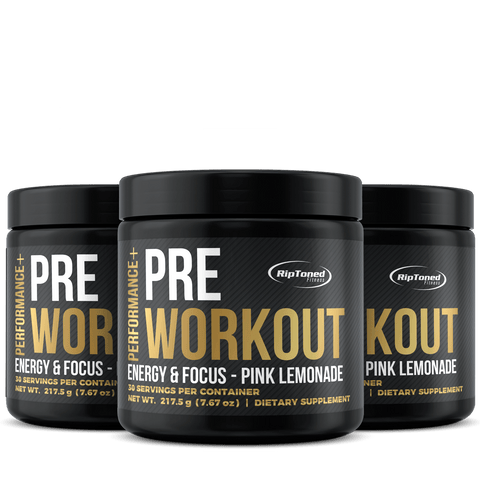
Is Whey or Plant Protein Better for Weight Loss
Share
When considering weight loss and protein consumption, the choice between whey and plant-based proteins emerges as a pivotal consideration. Whey protein, derived from dairy sources, boasts a reputation for its rapid absorption rates and rich amino acid profile, making it a favored option for muscle recovery and growth.
Conversely, plant-based proteins sourced from plants like peas, soy, or hemp offer a vegan-friendly alternative abundant in fiber and antioxidants. Both protein varieties have demonstrated efficacy in supporting weight loss goals by aiding in satiety, preserving lean muscle mass, and regulating metabolism.
Whether whey or plant protein reigns supreme in the pursuit of weight loss hinges on individual nutritional needs, preferences, and dietary restrictions. In this article, we will compare and contrast the characteristics of whey and plant protein to discern which may be the better option for weight loss.
What are Whey Protein and Plant Protein?
Whey Protein
Whey protein is a milk-derived protein produced during the cheese-making process. It is composed of two main proteins: whey concentrate and whey isolate. Concentrate contains 70-80% protein, while isolates contain over 90% protein. Whey protein concentrate is the most common form of whey protein, while isolates are more refined and filtered.
This type of protein is considered a complete protein as it contains all nine essential amino acids necessary for muscle growth and repair. It is also rich in branched-chain amino acids (BCAAs), which are crucial for building and maintaining lean muscle mass. Whey protein isolate is often the preferred choice for individuals looking to increase protein intake while minimizing their carbohydrate and fat intake. Protein powder supplements, often made with whey, are popular for individuals seeking to boost their protein intake.
Plant Protein
Plant protein, on the other hand, is sourced from plants like peas, soy, rice, or hemp. While each plant source may have a different nutrient profile, plant proteins are generally lower in fat and calories than whey protein. Pea protein, for example, is low in carbohydrates and fat and high in iron. Soy protein contains all nine essential amino acids and has been shown to have muscle-building effects like whey protein.
However, most plant proteins are not considered complete proteins as they lack one or more essential amino acids. To make up for this deficiency, many plant-based protein powders combine multiple sources to create a complete protein profile.
What are the Different Kinds of Whey And Plant Protein?
Types of Whey Protein
When looking for whey protein supplements, you may come across three main types: concentrate, isolate, and hydrolysate. Each type has a different level of processing and thus differs in nutrient content and absorption rates.
- Whey Concentrate: This is the most common form of whey protein and contains 70-80% protein.
- Whey Isolate: This form of whey protein is more refined than concentrate and contains over 90% protein.
- Whey Hydrolysate: This form of whey protein undergoes hydrolysis, breaking the proteins into smaller fragments.
Types of Plant Protein
Similarly, plant-based proteins can also be categorized into different types based on their source and processing methods. Some common types include:
- Pea Protein: Made from yellow split peas, pea protein is rich in branched-chain amino acids (BCAAs) and can aid in muscle growth and repair.
- Soy Protein: Made from soybeans, this plant protein is a complete source of protein and contains all nine essential amino acids.
- Rice Protein: Derived from brown rice, this protein is easily digestible and suitable for individuals with soy or dairy allergies.
- Hemp Protein: Made from hemp seeds, this plant protein is a good source of fiber and contains omega-3 fatty acids.
Is Whey or Plant Protein Better for Weight Loss?
In terms of weight loss, whey and plant protein are effective in helping individuals reach their goals. Here are some factors to consider when deciding between the two:
Satiety
One primary way protein aids in weight loss is by promoting satiety or a feeling of fullness. Both whey and plant protein have been shown to increase satiety levels, which can help individuals consume fewer calories throughout the day.
However, studies have shown that whey protein may be more effective in promoting long-term satiety than plant proteins. This could be due to its higher concentration of BCAAs, which have been shown to decrease appetite and increase feelings of fullness.
Muscle Preservation
When trying to lose weight, it is important to preserve lean muscle mass to maintain a healthy metabolism and prevent weight regain. Both whey and plant protein have been shown to effectively preserve lean muscle mass during weight loss.
However, whey protein may be slightly more effective due to its high concentration of BCAAs, essential for muscle growth and repair.
Protein Content and Calorie Density
Due to their lower fat content, plant proteins tend to be lower in calories than whey protein in terms of calorie density. This can be advantageous for weight loss, as consuming fewer calories can help create a calorie deficit necessary for shedding pounds.
Digestibility and Absorption Rates
Whey protein has been shown to have higher absorption rates compared to plant proteins. This means the body can quickly break down and utilize whey protein for muscle repair and growth. Whey protein powder is also less likely to cause bloating or stomach discomfort, making it a favorable option for those with sensitive digestive systems.
On the other hand, plant-based proteins tend to be more slowly digested and absorbed, providing a steady supply of amino acids throughout the day. This may be beneficial for weight loss as it can help maintain satiety levels over a longer period.
Personal Preferences and Dietary Restrictions
When it comes down to it, the decision between whey and plant protein for weight loss may ultimately come down to personal preferences and dietary restrictions. Whey protein may be a better option for those who are not vegan or have dairy allergies, while plant-based proteins offer a vegan-friendly alternative.
Plant protein powders also tend to be more affordable than whey protein powders, making them a budget-friendly option for weight loss. Additionally, some individuals may find that they digest one type of protein better, leading to less bloating and discomfort.
Tips for Incorporating Whey or Plant Protein into Your Weight Loss Plan
No matter which type of protein you choose, here are some tips for incorporating it into your weight loss plan:
- Aim to consume around 20-30 grams of protein per serving.
- Consume a protein shake within an hour after working out to aid muscle recovery and growth.
- Use protein powder as a meal replacement or snack to help control cravings and increase satiety levels.
- Add protein powder to meals such as oatmeal, smoothies, or baked goods for an added protein boost.
- Choose a high-quality protein powder with minimal additives and fillers.
Pros and Cons of Whey and Plant Protein for Weight Loss
Pros of Whey Protein
- High in BCAAs, which have been shown to aid in weight loss.
- Easily digested and absorbed by the body.
- It can be beneficial for muscle preservation during weight loss.
Cons of Whey Protein
- It may not be suitable for those with dairy allergies or lactose intolerance.
- It can be more expensive than plant-based options.
Pros of Plant Protein
- Suitable for vegans and individuals with dairy allergies or lactose intolerance.
- Often less expensive than whey protein.
- Provides a steady supply of amino acids to the body throughout the day.
Cons of Plant Protein
- It may not contain all essential amino acids, making it an incomplete source of protein.
- It can be less efficiently digested and absorbed by the body compared to whey protein.
FAQs
What are the benefits of whey protein supplementation for weight loss?
Whey protein supplementation is favored for its rapid absorption and complete amino acid profile, aiding muscle recovery and growth during weight loss efforts.
Can whey protein burn fat?
While whey protein does not directly burn fat, it can aid in weight loss by promoting satiety and preserving lean muscle mass.
How does hydrolyzed whey protein compare to plant-based protein powders for weight management?
Hydrolyzed whey protein, with its pre-digested form, may offer quicker absorption rates than plant-based protein powders, potentially enhancing post-workout recovery and supporting weight loss goals.
Can whey protein replace a meal?
Yes, whey protein can be used as a meal replacement in a weight loss plan. However, it is important to still consume a balanced and nutritious diet and not rely solely on protein shakes for your meals.
Conclusion
In the quest for weight loss, the decision between whey and plant-based proteins transcends mere dietary preference, delving into nuanced considerations of nutritional efficacy and personal values.
While whey protein shines with its rapid absorption and muscle-building properties, plant-based alternatives offer a vegan-friendly, fiber-rich option aligning with ethical and health-conscious lifestyles.
Ultimately, the choice between whey and plant protein for weight loss hinges on individual needs, goals, and values, highlighting the importance of personalized nutrition strategies in achieving sustainable and successful weight management outcomes.

Click Here to Learn More About the Rip Toned Pre Workout
